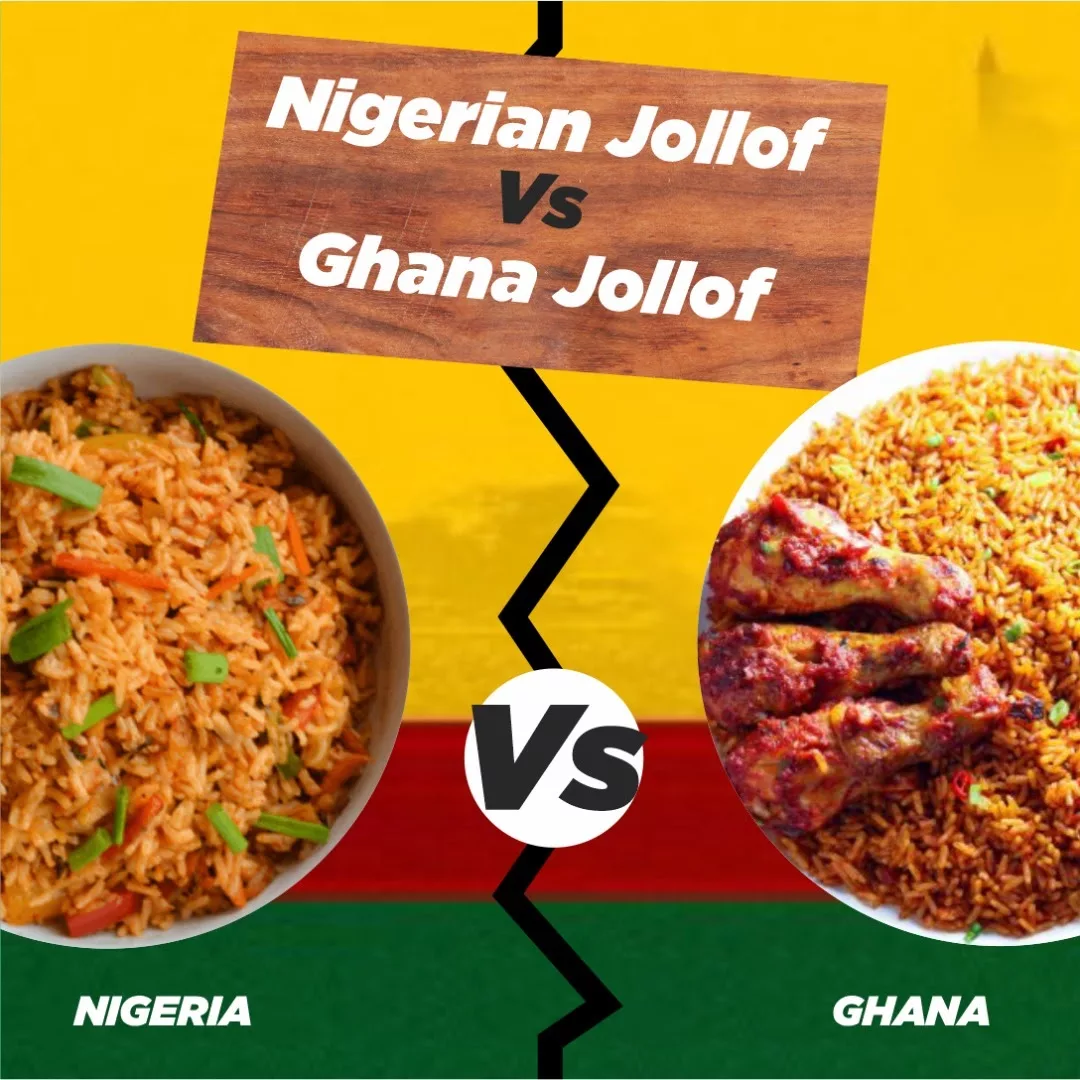The rivalry between Nigeria and Ghana over the jollof rice has recently been the subject of renewed interest, not to say violence. This time, it is Hilda Baci’s statement that set things alight, setting the mainstream and social media ablaze. In fact, during a programme, excerpts of which were widely spread on Internet, this Nigerian woman stated that Nigeria’s jollof rice is better than that of Ghana. But some Ghanaians didn’t take kindly to her assertion, and made sure she knew it in the harshest possible terms.
Hilda Baci is a 27-year-old woman who made a name for herself in Lagos by winning a Guinness World Record in May 2023 for ‘The Longest cooking record’, after cooking for 93 hours and 11 minutes, with a 5-minute break every hour.
During the podcast ‘90s Baby Show’ on 20 November 2023, she told her listeners: ‘Nigerian jollof is actually better than Ghanaian jollof. I’ve been to Ghana and I’ve eaten their jollof. I’ve done a jollof competition with Ghanaian chef who made his best representation of Ghanaian jollof and I’ve seen the recipes. But with Nigerian jollof, Nigerians don’t play about flavour.’ Hilda Baci’s statements sparked off a storm of controversy, so much so that for several days now, by way of ‘retaliation’, she has been fiercely criticized and even threatened by a horde of furious Internet users who are determined to make her regret her unfortunate media appearance.
Antagonisms between these two sister countries in West Africa are commonplace, particularly in music. In 2016, however, some Internet users in these countries united against English chef Jamie Oliver. They accused him of cultural appropriation, especially as he had taken the liberty of cooking jollof rice with coriander, parsley and lemon. Theft and sacrilege! they chanted for weeks.
However, it should be noted that, strange as it may seem, Nigeria and Ghana are fighting over a culinary speciality that is actually foreign to them. They have simply resorted to culinary borrowing. In fact, jollof rice was created by the Senegalese Penda Mbaye (1904–1984). In Senegal, this essential dish in the national cuisine is called ‘ceebu jën’, i.e. rice with fish. The dish consists of rice cooked in a sauce made from seasonings (oil, garlic, parsley, onion, etc.), fresh and/or concentrated tomatoes, vegetables (okra, pumpkin, cabbage, aubergine, carrot, Guinea sorrel leaves and sepals, etc.), manioc tubers and fish. Of course, there are many variations, such as chicken, meat…
Note that the gastronym ‘jollof rice’ is made up of two terms. On the one hand, there is ‘jollof’, which refers to an ethnic group (Wolof in French) found mainly in Senegal, but also in Gambia. On the other, we have the English word ‘rice’, which refers to the well-known cereal. It is no doubt in reference to this ethnic group that English-speaking populations began to refer to this rice-based specialty cooked in the Wolof style as ‘jollof rice’, or sometimes simply ‘jollof’.
It was the Senegalese community abroad that gradually popularised the dish during its various migrations. As a result, the dish is known as ‘riz gras’ in Côte d’Ivoire, ‘riz sénégalais’ in French-speaking Cameroon and ‘jollof rice’ in Ghana, Nigeria and English-speaking Cameroon. On 2 September 2020, Cameroonians Ashley Vola and Kelly Cynthia won the Plate of Origin World Cup cooking competition in Australia, broadcast on the Seven Network channel, with their main dish of jollof rice with chicken, against Vietnamese Than and Duncan.
However, internationally, jollof rice is better known as a dish that originated in Nigeria. As proof of this, in September 2022, in the TasteAtlas ranking of the 50 best rice-based culinary specialties, Nigeria was the only country to feature in 43rd place, with its famous jollof rice. In the meantime, ‘ceebu jën, a culinary art of Senegal’ has been inscribed on UNESCO’s list of Intangible Cultural Heritage of Humanity on 15 December 2021. By taking this gastrostrategic step, Senegal may have wanted to guard against any attempt at ‘dispossession’ by certain African countries, notably Nigeria and Ghana, which are currently at loggerheads over the dish. One question remains: why is it that these two countries, despite their gastrodiversity, have not yet included a single culinary specialty in this UN heritage institution?
Rather than divide, cuisine should serve as a link between the different African peoples. Nigeria and Ghana would therefore do well to take advantage of this umpteenth jollof rice war, by creating a world jollof rice championship, for example, in order to better assert their claims to be the best cooks. Such an approach is literally part of the sawing away of taste power, i.e. influence through taste, through food and culinary specialities. A number of countries from Africa and elsewhere will be taking part in this culinary arts competition. The jury, for its part, could be made up of personalities from the worlds of catering, agri-food, tourism, entertainment, the media and scientific research. By guaranteeing visibility in return for sponsorship, this continental challenge should be of interest to companies marketing products such as rice, oil or tinned tomatoes, as well as those offering kitchen utensils or household appliances.
READ ALSO: Hilda Baci receives her Guinness World Records plaque



